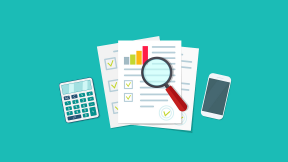Financial habits that can help maintain your credit score

Positive financial habits can help set you up for long-term success and reach your personal financial goals. Maintaining your credit is one of those habits and something you can start working on today.
Why is your credit score important?
Many of the financial decisions you may make revolve around your credit score, like when you apply for a loan or a credit card. Your score can influence if you qualify for the loan, as well as the rates you'll pay.
If you're unfamiliar, a credit score is a three-digit number that's calculated using credit scoring models and is updated regularly with information from your credit accounts. Two examples of credit scoring models are VantageScore® and FICO®.
VantageScore and FICO scores are categorized as follows:
VantageScore credit score ranges are:
- Excellent: 781 to 850
- Good: 661 to 780
- Fair: 601 to 660
- Poor: 500 to 600
- Very poor: 300 to 499
FICO credit score ranges are:
- Exceptional: 800+
- Very good: 740 to 799
- Good: 670 to 739
- Fair: 580 to 669
- Poor: 579 and below
How to maintain good credit
Whether it's VantageScore or FICO, maintaining and improving your credit score is influenced by five key factors, aligned with good credit habits.
The factors
- Your payment record: Do you make your payments on time?
- Your credit usage: Are you using too much of your available credit?
- The age of your credit: How long have you had a credit record?
- The types of credit: Do you have a mix of credit types, or just one?
- New credit: Have you applied for credit recently?
The habits
The factors above can influence your credit, as well as these three essential habits.
Make your payments on time
Make your credit card, and all bill payments, on time. Payment history is a significant portion of your credit score, so missing a payment can negatively impact your credit history. If you're worried that you may miss a payment, enrolling in automatic payments can help you stay on top of your finances and due date.
Stay well below your credit limit
Your credit utilization is the percentage of credit you are using out of your total available credit. Many sources suggest keeping it under 30 percent to maintain good credit.
Check your statements and your score
You may encounter billing errors or fraudulent charges made with your card, so actively checking your credit reports and statements can help you identify a problem early and act to fix it. You can sign up for Chase Credit Journey to estimate your score and see if there have been any drastic changes.
Good financial habits are something you can learn, and what better place to start than with your credit score? Make those payments on time, stay well below your credit limit and monitor your score and you'll already be exercising some of the best habits you can.



